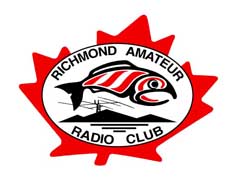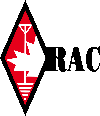Overview of RARC Learning Program
Like other Amateur radio organizations, Richmond Amateur Radio Club (RARC) has been offering annual Basic Qualification radio courses to bring new Amateurs into the hobby. Over recent years, RARC extended its learning opportunities to a broader public audience through special presentations, seminars and public displays as outreach initiatives to promote awareness of Amateur radio in the local community. Leveraging on its experience in knowledge exchange, RARC introduced a Learning Program to deliver formal and casual learning opportunities for topics of interest in Amateur radio.
The RARC Learning Program aims at offering information of interest to:
- Individuals interested in learning about Amateur radio and obtaining their qualification of proficiency certificate
- Members of Amateur radio community who want to increase their knowledge
- Groups and individuals who want or need to learn more about radio communications
Content in the RARC Learning Program are in the form of:
- Casual information sessions and presentations of general interest
- Structured presentations and seminars on specific subjects of interest
- Schedules classes for qualification courses and other skills training
The Learning Program is structured on initiatives in three key areas:
- Expand delivery of the Basic course:
- Offer course on a more flexible schedule
- Design coursse on a compressed schedule (i.e. over one weekend)
- Provide smaller classes with tutorials for individual students
- Provide ongoing classes (i.e. weekly) to accommodate students with uncertain schedules
- Extend offering of certification courses to include Advance and Morse Code
- Offer opportunities to develop knowledge and skills inrelevant topics:
- Introduction to Amateur radio activities
- Improvement on radio operations
- Information on Amateur radio topics
Delivery of the program will be based on:
- Structured courses over a series of classes (i.e. Basic Qualification course)
- Individual classes on specific topics
- Presentations at organized events (i.e. seminars)
- Specific presentations at the request or invitation of host organizations
Strategic objectives for the program:
- Establish RARC as a go to place to learn about Amateur radio
- Use marketing for course offerings to reach out to other groups
- Position course offerings to attract membership and public engagement
- Cultivate a sustainable alternate revenue stream for RARC (not all club activities generate revenue)
Long-term objectives:
- Establish course offerings as part of the RARC brand
- Establish a learning institute for RARC
- Attract long-term sponsors and repeat donors
Content delivered will be integrated with topics that are unique and specific to the region in order to remain competitive with others also offering similar (online) classes outside the region.
- Focus on activities unique and specific to the region
- Cater to needs of local audience (with common interests)
- Provide content of value to local organizations (aligned with Amateur radio interests)
The Course Calendar lists classes and presentations that are either ready or require little preparation, as many of the content have already been presented. |
| About RARC |
|
RARC is a registered BC Society to promote the interests of Amateur radio, assist in the provision of communication services in the event of an emergency, and provide radio communication for public events as requested. RARC supports Emergency Management BC and City of Richmond Emergency Programs by its members volunteering with local municipal emergency preparedness organizations, has an agreement with the Gulf of Georgia Cannery Society, and is affiliated with Radio Amateurs of Canada. Programs for RARC are partially supported by grants from the City of Richmond and Province of British Columbia, RARC programs have been partially funded by grants from City of Richmond and Province of BC, private donations, and in-kind contributions from businesses in the local community.
|
Amateur Radio
Culture and Practices
|
Ham radio and Amateur radio basically refer to the same hobby/activity. 'Ham' is more often used in the U.S.
while some serious hobbyists in Canada prefer to be called a radio Amateur.
'Amateur' is a class of allocated frequencies and operator qualifications defined by ISED Canada and refers to non-commercial use rather than an adjective for sub-standard.
That is why some writers choose to capitalize 'Amateur.'
Personal call signs in Canada are 6 or 5 characters with the first letter 'V' defining the country and subsequent letter and number province/territory, and the last 2 or 3 individually chosen by the operator. All Amateur radio call signs are internationally coordinated by ITU, so each calll sign is unique.
Letters on call signs are always capitalized and there is no space between any of the characters - it is not a postal code.
Most radio Amateurs end their messages (voice, Morse code, or text) with '73' (meaning best regards) taken from the "Phillips Code" used for the old land telegraph systems.
|
|


